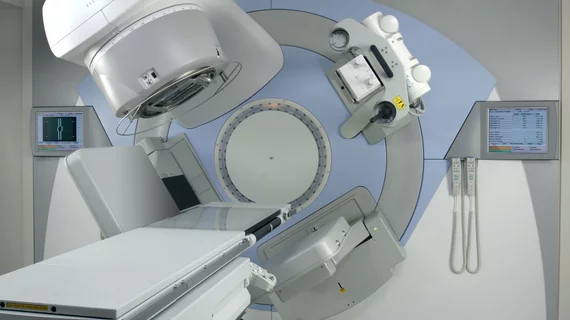SNMMI selects first Radiopharmaceutical Therapy Centers of Excellence
The Society of Nuclear Medicine and Molecular Imaging has appointed its first two institutions as Radiopharmaceutical Therapy Centers of Excellence.
In a statement released March 10, SNMMI announced that Stanford Health Care and the Dana-Farber Brigham Cancer Center would be receiving the esteemed title. Both organizations are considered comprehensive centers that administer radiopharmaceutical therapies, including those that treat thyroid and prostate cancer.
In a statement thanking SNMMI for the honor, Andrei Iagaru, MD, chief of the division of nuclear medicine and molecular imaging at Stanford Health Care said, “We are honored to receive this designation in recognition of our decade-long investments in space, equipment, and personnel done to provide advanced theranostic care to our patients.”
So too did Heather Jacene, MD, clinical director of Nuclear Medicine/PET-CT at the Dana-Farber Brigham Cancer Center, stating, “The evolution of radiopharmaceutical therapy and theranostics at the Dana-Farber Brigham Cancer Center has been a journey of innovative, multidisciplinary and compassionate care that is at the heart of the Cancer Center’s mission. This designation by SNMMI is a wonderful recognition of our hard work, and we are excited to continue to advance the field in partnership with our medical colleagues, industry partners and researchers in the theranostics community.”
SNMMI’s Radiopharmaceutical Therapy Center of Excellence program was established to ensure that institutions adhere to the strict regulatory training, qualification and performance standards necessary to safely deliver radiopharmaceutical therapies, such as Lutathera and Xofigo, as well as other agents pending FDA approval for use. The meticulously chosen institutions that receive the excellence designation are diligent in their efforts to prioritize practices that focus on patient care, safety and outcomes, according to the announcement.
Organizations that wish to receive the Radiopharmaceutical Therapy Center of Excellence title must match strict site and care team requirements. Sites must administer a minimum of 40 radiopharmaceutical therapies (RPTs) per year, have their staff participate in specific RPT quality improvement and continuing education courses and engage in one active RPT clinical trial annually, among other qualifications.
Some of the care team staffing requirements include a medical physicist, radiation safety officer, authorized user, certified nuclear medicine technologists and an ABNM, ABR-DR or NR-CAQ certified physician to read molecular studies.
The SNMMI states that the designation is valid for two years. For more information on how to receive the title of a Radiopharmaceutical Therapy Center of Excellence, visit SNMMI.org.
More molecular imaging content:
Prominent imaging society advocates for 5 changes following CMS amyloid PET payment decision
Is PET/CT or multiparametric MRI best for detecting prostate cancer? New research offers guidance
F-18 FDG PET/CT highly sensitive for diagnosing cause of fevers with unknown origin
‘Unusual’ pattern on PET/CT scans may indicate omicron, imaging experts warn

